-
GeneralGeneralTeacher
-
Lifestyle Medicine Homepage

This Lifestyle Medicine introductory course provides a foundation of theoretical and practical knowledge and skills, as well as an opportunity to plan strategies and practice techniques for assisting patients with positive health behavior changes. All parts of this training are free, including registration, learning, testing, and a certificate of completion. This course is intended for primary-care physicians, nurses, and allied health professionals in training and in practice.
This Lifestyle Medicine course was developed in partnership with Bar-Ilan University, the Brookfield Centre for Lifestyle Medicine, the European Lifestyle Medicine Organization, the Institute of Lifestyle Medicine at Harvard, the Israeli Society of Family Medicine - Lifestyle Medicine Section, the Lifestyle Medical Education Collaborative, and the USC School of Medicine Greenville. Like all NextGenU.org courses, the course is competency-based; this course utilizes competencies from the Lifestyle Medicine Program Curriculum Outline of the American College of Lifestyle Medicine and the Israeli Society of Family Medicine - Lifestyle Medicine Section. In addition, the Lifestyle Medicine course uses resources from accredited world-class organizations, including the American College of Lifestyle Medicine, the American College of Preventive Medicine, the American College of Sports Medicine, the U.S. Centers for Disease Control and Prevention, the U.S. National Institutes of Health, and the World Health Organization. The course developer is Lilach Malatskey, MD, MHA, Chairman of the Israeli Society of Lifestyle Medicine of the Family Physicians Association, who received substantial input from the Executive Members of the Israeli Society of Family Medicine, Lifestyle Medicine Section. Significant feedback was also received from our Advisory Group members, Ioannis Arkadianos, MD; Erica Frank, MD, MPH; Ioan Hanes, MD; Jenny Lee, MD, PhD, MPH; Dr. Ifeoma Monye, MBBS, DCH, DFFP, DRCOG, FRCGP; Edward M. Phillips, MD; Verena Rossa-Roccor, MD; Mary Rudolf, MB, BS, BSc, FRCPCH, FAAP; Jennifer Trilk, PhD; and Stefania Ubaldi, MD, PhD.
For a publication on this course’s efficacy, see “NextGenU.org’s Free, Globally Available Online Training in Lifestyle Medicine,” (2017), American Journal of Lifestyle Medicine, https://doi.org/10.1177/1559827616682444; see also “Building Public Health Capacity through Online Global Learning,” (2018), Open Praxis, to see more research related to NextGenU.org’s educational model, click on NextGenU.org’s publication page. Subscribe to our newsletter to be notified of future updates, new courses, and to be part of our community.
There are two components to this course.
The first component involves completing the modules and which provide:
- An introduction to the principles of lifestyle medicine, and an understanding of the effects of physical activity, nutrition, sleep, stress, and sexuality on health;
- Overviews of smoking cessation and alcohol use disorders;
- Skills to develop and implement action plans for lifestyle medicine in both clinical and personal settings.
In order to receive a certificate of completion, you will need to also complete the second, skills-based component of the course, which requires you to identify a person (could be a patient or an acquaintance) who would like to make one or more lifestyle changes. During this course, you will meet with this person 3 times and practice strategies you have learned to help others make behavioral changes. You may meet in person or via video conferencing. You will also need to identify a mentor with professional health care training at least at the bachelor’s level (a college degree), and with a certificate or other specific training in Lifestyle Medicine, who can provide you with feedback on the assignments you submit about your relationship with your patient.
The results of your assessments will be provided to you, and we can report your testing information and share your work with anyone you request (school, employer, etc.). The evaluation you provide at the course’s conclusion will help us improve the training for future students. We hope you find this Lifestyle Medicine course a wonderful learning experience!
Approximate time for completion of this course is 49 hours at an average reading rate of 144 words/minute.
Before you begin the course, please take a moment to take the short knowledge Pre-test below. It allows us to assess various aspects of the course itself and is mandatory to receive your certificate upon completion of the course.
The course requires the completion of peer and mentored activities. At the end of each lesson, there is a practice quiz. At the end of the course, after you’ve completed each lesson, quiz, and activity, you’ll have access to a final exam, and a chance to assess the training. Once you’ve passed that last test, you will be able to download a certificate of completion from NextGenU.org and our course’s co-sponsoring organizations (listed above). We keep all of your personal information confidential, never sell any of your information, and only use anonymized data for research purposes, and we are also happy to report your testing information and share your work with anyone (your school, employer, etc.) at your request. We hope that you will find this a rewarding learning experience, and we count on your feedback to help us improve this training for future students.
Engaging with this Course
You may browse this course for free to learn for your personal enrichment; there are no requirements.
To obtain a certificate
- Show in the registration fields that you have the appropriate prerequisites to be certified. This course requires the learner to have already obtained a college-level degree.
- Take the brief pre-test.
- Complete all the reading requirements.
- Complete all quizzes and pass with a 70% with unlimited attempts.
- Complete 1 peer activity and associated certification quizzes.
- Find a mentor and complete the 8 required mentor activities.
- Successfully complete the final exam with a minimum of 70% and a maximum of 3 attempts.
- Complete the self and course evaluation forms.
To obtain credit
- Complete all requirements listed above for the certificate.
- Your learning institution or workplace should approve the partner-university-sponsored NextGenU.org course for educational credit, as they would for their learner taking a course anywhere.
- NextGenU.org is happy to provide your institution with:
- a link to and description of the course training, so they can see all its components, including the cosponsoring universities and other professional organization cosponsors;
- your grade on the final exam;
- your work products (e.g. peer and mentored activities), and any other required or optional shared materials that you produce and authorize to share with them;
- your evaluations -- course, self, peer, and mentor assessments;
- a copy of your certificate of completion, with the co-sponsoring universities and other organizations listed.
To obtain a degree co-sponsored with NextGenU.org, registrants must be enrolled in a degree program as a student of a NextGenU.org institutional partner. If you think that your institution might be interested in offering a degree with NextGenU.org contact us
We hope that you will find this a rewarding learning experience, and we count on your assessment and feedback to help us improve this training for future students.
Next Steps
- Take the short knowledge pre-test below. It allows us to assess various aspects of the course itself.
- Complete the registration form.
- Complete the survey on your health practices, as this will allow us to study any personal behavioral changes that happened during the time you took this behavioral change course.
- Begin the course with Module 1: Introduction to Lifestyle Medicine. In each lesson, read the description, complete all required readings and any required activity, and take the corresponding quizzes.
This course meets nationally approved standards of education developed for the addiction/substance use disorders counseling profession. This course's participants are assured that the continuing education (CE) credits provided will be accepted toward national credentialing by the NAADAC Certification Commission for Addiction Professionals (NCC AP), as well as by many of the individual state licensing/certification bodies in the addiction and other helping professions.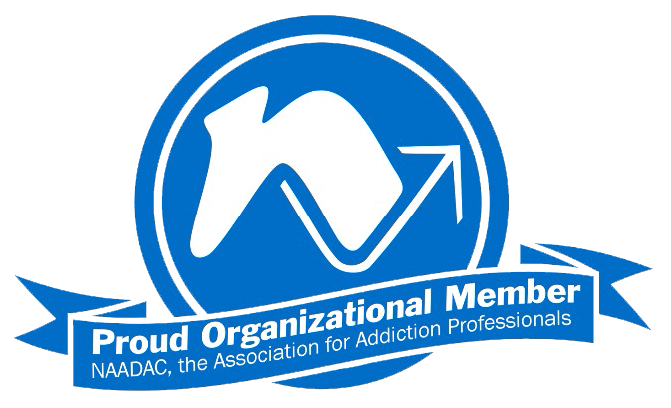
-
Module 1: Introduction to Lifestyle Medicine
Before starting this first module, please take a moment to take the short knowledge Pre-test above. It allows us to assess various aspects of the course itself and is mandatory to receive your certificate upon completion of the course.
First, do no harm. — Hippocratic oath

Competency covered in this module:
- Introduction to lifestyle medicine.
- The role of physician health.
- Environmental lifestyle factors and their impact on non-communicable diseases.
1 URL - Introduction to lifestyle medicine.
-
Module 1 : Lesson 1: Definition, Role, and Evidence Base for Lifestyle Medicine
Approximate time required for the readings for this lesson (at 144 words/minute): 1 hourLearning Objectives:
- Define lifestyle medicine (LM) and describe the unique role of LM.
- Describe the LM core competencies as identified by a national consensus panel.
- Cite the scientific evidence that demonstrates the association of risk conditions (from unhealthy behaviors) as key to health outcomes.
7 URLs -
Module 1 : Lesson 2: The Importance of Lifestyle Medicine in Treating the World's Lifestyle Disease Burden
Learning Objectives:
- Understand the importance of LM in treating the world's lifestyle disease burden.
3 URLs, 1 Quiz -
Module 1 : Lesson 3: The Role of Physician Health and Physician Advocacy
Learning Objectives:
- Cite scientific data supporting that physicians who practice healthy lifestyles are more likely to offer counseling and improve patient outcomes.
3 URLs, 1 Quiz, 1 Assignment -
Module 1 : Lesson 4: Environmental Lifestyle Factors and Their Impact on Non-communicable Diseases
Learning Objectives:
- Understand environmental lifestyle-related factors and their impact on non-communicable diseases.
2 URLs, 1 Quiz -
Module 2: Fundamentals of Health Behavior Change
Knowing is not enough—we must apply. Willing is not enough—we must do. — Johann Wolfgang von Goethe
Competency covered in this module:
- Fundamentals of health behavior change.
1 URL - Fundamentals of health behavior change.
-
Module 2 : Lesson 1: Introduction to Behavior Change

Learning Objectives:
- Understand the role of behavioral determinants on positive and negative health outcomes.
1 Page, 1 URL, 1 Quiz -
Module 2 : Lesson 2: Tools for Health Behavior Change
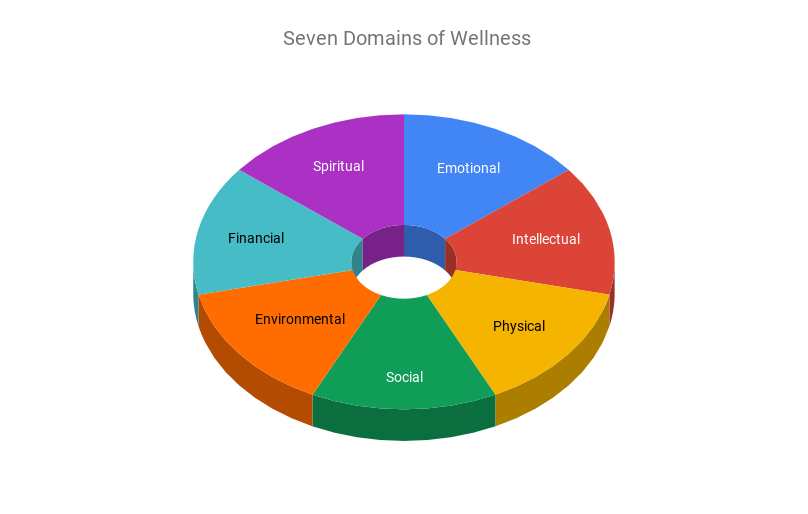
Learning Objectives
- Demonstrate key elements of conducting patient readiness assessment and stage matched responses.
- Understand the gap between clinical guidelines and patient behavior; know how to apply the transtheoretical model of health behavior change.
1 Page, 3 URLs, 1 Assignment, 1 Quiz -
Module 2 : Lesson 3: Techniques for Health Behavior Change

Learning Objectives
Upon completion of the first lesson of Module 2, students should be able to:
- Apply motivational interviewing, cognitive behavioral, and positive psychology techniques.
1 Page, 8 URLs, 1 Quiz, 1 Assignment - Apply motivational interviewing, cognitive behavioral, and positive psychology techniques.
-
Module 2 : Lesson 4: Building Effective Relationships with Patients

Learning Objectives
- Describe the process of building effective relationships with patients.
1 Page, 2 URLs, 1 Quiz -
Module 2 : Lesson 5: Maintain Healthy Behaviors
Learning Objective:

- Describe strategies for helping patients maintain healthy behaviors.
1 Page, 3 URLs, 1 Quiz -
Module 3: Physical Activity
Those who think they have no time for bodily exercise will sooner or later have to find time for illness. — Edward Stanley, Earl of Derby (1873)

Competency covered in this module:
- Physical activity science and prescription.
1 URL - Physical activity science and prescription.
-
Module 3 : Lesson 1: Introduction to Physical Activity
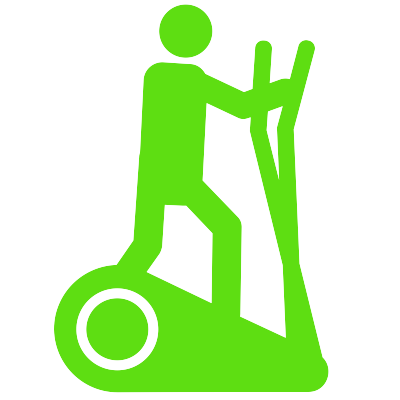
Learning Objectives
- Describe the relationship between physical activity and health.
4 URLs, 1 Quiz -
Module 3: Lesson 2: Recommendations on Physical Activity
Learning Objectives
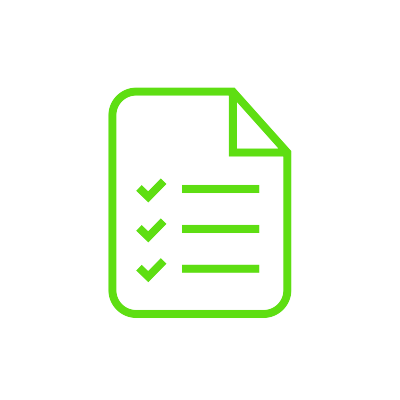
- Describe the global physical activity guidelines recommended by the WH.
2 URLs, 1 Quiz -
Module 3: Lesson 3: Components of Physical Activity

Learning Objectives
- Describe the major evidence for the physical activity components (aerobic, strength, flexibility, and balance).
2 URLs, 1 Quiz -
Module 3 : Lesson 4: Patient Evaluation

Learning Objectives
- Evaluate a patient prior to the initiation of physical activity.
3 URLs, 1 Assignment, 1 Quiz -
Module 3 : Lesson 5: Exercise Prescription

Learning Objectives
- Develop an exercise prescription.
6 URLs, 2 Assignments, 1 Quiz -
Module 3 : Lesson 6: Improving Exercise Adoption and Maintenance

Learning Objectives
- Motivate patients to increase their physical activity.
3 URLs, 1 Quiz, 2 Assignments -
Module 4: Nutrition
Let food be thy medicine and medicine be thy food. — Hippocrates
Competencies covered in this module
- Nutrition science, assessment, and prescription
1 URL -
Module 4 : Lesson 1: Introduction to Nutrition
Learning Objectives
- Describe the basics of nutrition, as well as the metabolic effects of different foods.
- Summarize the major nutrition studies and evidence base for nutrition prescriptions.
1 Page, 7 URLs, 1 Quiz -
Module 4 : Lesson 2: The Role of Nutrition in Preventing and Treating Chronic Diseases

Learning Objectives
- Describe different types of diets and their effects on health.
- Understand the role of nutrition in preventing and treating chronic diseases, such as cardiovascular disease.
- Describe the role of nutrition in preventing, treating, and reversing diabetes.
- Summarize nutrition prescriptions for the most common chronic diseases including hyperlipidemia, diabetes, hypertension, and cancer.
- Know how to prescribe nutrition for basic disease processes including inflammation: food patterns / macronutrients, food types / micronutrients, food preparation / oxidation.
1 Page, 18 URLs, 1 Quiz -
Module 4 : Lesson 3: Dietary Guidelines and Nutrition Prescriptions

Learning Objectives
- Demonstrate ability to perform a basic nutrition assessment and to apply practical strategies to assist patients in achieving dietary changes.
- Describe the basic principles of healthy cooking.
- Summarize the major nutrition studies and evidence base for nutrition prescriptions.
- Properly interpret nutrition labels.
1 Page, 9 URLs, 1 Quiz, 1 Assignment -
Module 4 : Lesson 4: Obesity
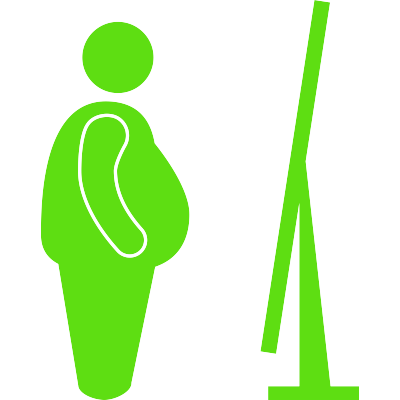
Learning Objectives
- Define obesity and understand its epidemiology as well as assist patients in the prevention and treatment of obesity.
1 Page, 13 URLs, 1 Quiz -
Module 5: Sleep Health
Competencies covered in this module

- Sleep health science and interventions.
1 URL -
Module 5: Lesson 1: The Role of Sleep in Health
Learning Objectives
- Understand sleep’s role in health and chronic disease.
- Understand the basic physiology and the structural organization of sleep.
Approximate time required for the readings for this lesson (at 144 words/minute): 1 hour
8 URLs, 1 Quiz -
Module 5 : Lesson 2: Sleep Disorder Evaluation and Management

Learning Objectives
- Know the common types of sleep disorders and the tools to evaluate and manage sleep.
- Identify lifestyle-based activity, dietary, environmental, and coping behaviors that can improve sleep health.
- Identify at least two lifestyle adjustments related to light exposure and meal composition and timing that support improved sleep.
Approximate time required for the readings for this lesson (at 144 words/minute): 1 hour
11 URLs, 1 Quiz -
Module 6: Tobacco Use
Tobacco kills up to half of its users. - World Health Organization (2016)Competencies covered in this module :
- Fundamentals of Tobacco Cessation
1 URL -
Module 6 : Lesson 1: Epidemiology of Tobacco-Related Diseases
Approximate time required for the readings for this lesson (at 144 words/minute): 1 hourLearning Objective:
- Understand the role of tobacco cessation in preventing and treating chronic disease.
- Summarize the evidence-based literature on tobacco cessation interventions.
5 URLs, 1 Quiz -
Module 6 : Lesson 2: The Physiological, Psychological, and Behavioral Components of Tobacco Use
Approximate time required for the readings for this lesson (at 144 words/minute): 1 hourLearning Objective:
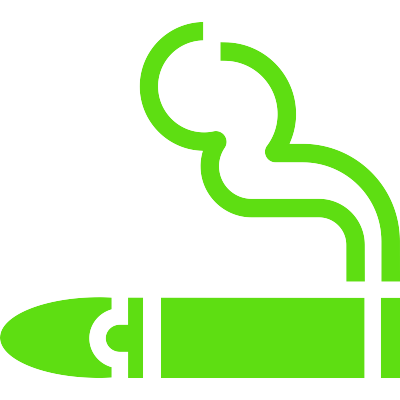
- Be able to state the aspects of tobacco addiction (physiological, psychological, behavioral).
3 URLs, 1 Quiz -
Module 6 : Lesson 3: Treatment of Tobacco Use
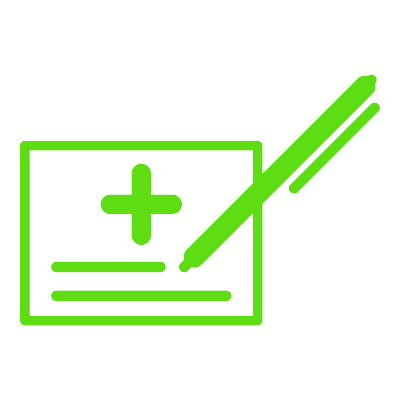
Learning Objective:
- Demonstrate ability to assist patients to develop and implement plans for smoking cessation.
- Be familiar with the medications and treatments commonly used for tobacco cessation.
- Develop a written action plan based on the treatment prescription, adjusted for the appropriate stage of change.
- Prescription.
10 URLs, 2 Assignments, 1 Quiz -
Module 7: Alcohol Use
"What are you doing here?" he asked the drunkard... "Drinking," replied the drunkard, with a gloomy expression. "Why are you drinking?" the little prince asked. "To forget," replied the drunkard. "To forget what?" inquired the little prince, who was already feeling sorry for him. "To forget that I'm ashamed," confessed the drunkard, hanging his head. "What are you ashamed of?" inquired the little prince, who wanted to help. "Of drinking!" concluded the drunkard... - Antoine de Saint-Exupéry, "The Little Prince"
Competencies covered in this module :
- Fundamentals of managing risky alcohol use
1 URL -
Module 7 : Lesson 1: Epidemiology of Alcohol-Related Diseases
Approximate time required for the readings for this lesson (at 144 words/minute): 1 hourLearning Objective:

- Understand the role of moderating alcohol use in preventing and treating chronic diseases.
1 Quiz, 2 URLs -
Module 7 : Lesson 2: Screening for Harmful Alcohol Use
Approximate time required for the readings for this lesson (at 144 words/minute): 1 hourLearning Objective:

- Describe screening processes for harmful alcohol use.
2 URLs, 1 Quiz -
Module 7 : Lesson 3: Intervention and Prevention

Learning Objective:
- Demonstrate the ability to assist patients to develop and implement plans for avoiding risky alcohol use.
- Know the components of relapse prevention planning.
- Develop a written action plan based on the treatment prescription, adjusted for the appropriate stage of change.
- Intervention.
3 URLs, 1 Assignment, 1 Quiz - Demonstrate the ability to assist patients to develop and implement plans for avoiding risky alcohol use.
-
Module 8: Emotional and Mental Well-being
"God, grant me the serenity to accept the things I cannot change, Courage to change the things I can, And wisdom to know the difference." - Reinhold Niebuhr, The Serenity Prayer

Competencies covered in this module:
- Emotional and Mental Well-being Assessment and Interventions.
People accept stress as an inevitable part of their lives, but exposure to chronic high levels leads to various forms of significant stress-induced morbidity.
In this module, you will learn how to identify a stressed patient and how to help him/her manage emotional and mental well-being.
Upon completion of this module, students should be able to:
- Understand the basic elements of stress response and the relationship between emotional distress and poor health.
- Describe the components of emotional wellness self-management.
- Use screening tools for stress, depression, and anxiety.
- Understand how skills of mindfulness-based stress reduction (MBSR) and other approaches can help patients intervene in stress reactions and better care for themselves.
- Demonstrate the ability to manage depression and anxiety in patients with comorbidities.
- Be familiar with the unique stressors associated with being a physician, along with the possible ways of coping with stress, and describe the role of the provider in facilitating the emotional well-being of patients.
1 URL -
Module 8 : Lesson 1: Relationship Between Stress and Health

Learning Objectives
- Understand the basic elements of stress response and the relationship between emotional distress and poor health.
- Describe the components of emotional wellness self-management.
1 Page, 4 URLs, 1 Quiz, 1 Assignment -
Module 8 : Lesson 2: Screening and Screening Tools
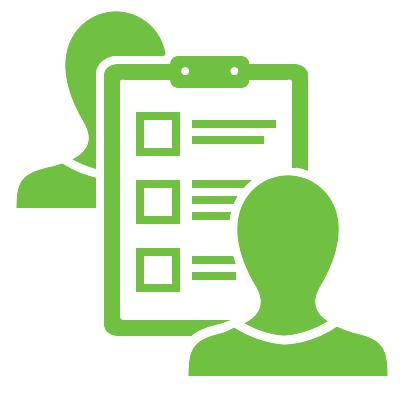
Learning Objectives
- Use screening tools for stress, depression, and anxiety.
Approximate time required for the readings for this lesson (at 144 words/minute): 1 hour
1 Page, 2 URLs, 1 Assignment, 1 Quiz -
Module 8 : Lesson 3: Lifestyle-related Intervention Strategies
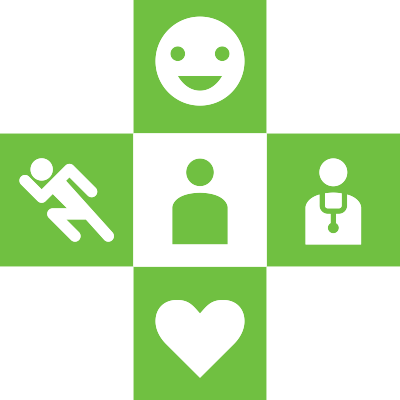
Learning Objectives
- Understand how skills of mindfulness-based stress reduction (MBSR) and other approaches can help patients intervene in stress reactions and better care for themselves.
Approximate time required for the readings for this lesson (at 144 words/minute): 1 hour
1 Page, 9 URLs, 1 Quiz -
Module 8 : Lesson 4: Depression and Anxiety in Patients with Comorbidities

Learning Objectives
- Demonstrate the ability to manage depression and anxiety in patients with comorbidities.
Approximate time required for the readings for this lesson (at 144 words/minute): 1 hour
1 Page, 1 URL, 1 Assignment, 1 Quiz -
Module 8 : Lesson 5: Stress and Burnout Among Physicians
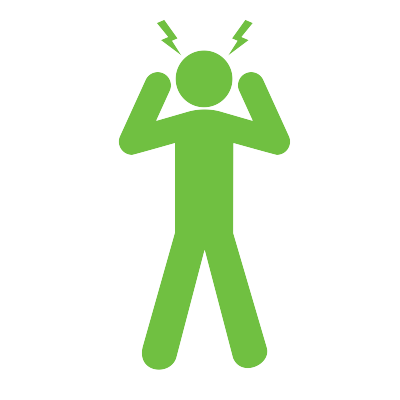
Learning Objectives
- Be familiar with the unique stressors associated with being a physician, along with the possible ways of coping with stress, and describe the role of the provider in facilitating the emotional well-being of patients.
Approximate time required for the readings for this lesson (at 144 words/minute): 1 hour
2 URLs, 1 Quiz, 1 Assignment, 1 Page -
Module 9: Sexuality and Health
Sexual health working definition: “... a state of physical, emotional, mental and social well-being in relation to sexuality; it is not merely the absence of disease, dysfunction or infirmity. Sexual health requires a positive and respectful approach to sexuality and sexual relationships, as well as the possibility of having pleasurable and safe sexual experiences, free of coercion, discrimination, and violence. For sexual health to be attained and maintained, the sexual rights of all persons must be respected, protected, and fulfilled.” The World Health Organization (2006)
 1 URL
1 URL -
Module 9 : Lesson 1: Relationship Between Sexuality and Health
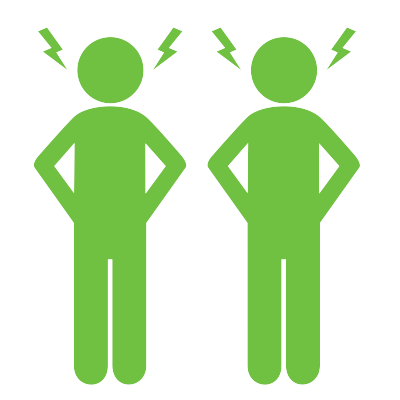
Learning Objectives
- Understand what is meant by the term ‘healthy sexuality’, and the relationship between sexuality and health.
Approximate time required for the readings for this lesson (at 144 words/minute): 1 hour
5 URLs, 1 Quiz -
Module 9: Lesson 2: Counseling Patients with Sexuality Issues

Learning Objectives
- Understand the role and the limitations of the physician in counseling and treating in the field of sexuality.
2 URLs, 1 Quiz, 1 Assignment -
Module 10: Implementing Lifestyle Medicine
“People are generally better persuaded by the reasons which they have themselves discovered than by those which have come into the minds of others.” - Blaise Pascal

Competencies covered in this module:
- Tools to promote health change.
- Key clinical processes in lifestyle medicine.
1 Page -
Module 10 : Lesson 1: Health Promotion in Clinics and Practices

Learning Objectives
- Describe strategies for incorporating wellness into clinic, medical office, or other healthcare settings (wellness programs for health providers).
- Describe the key strategies for leveraging the interdisciplinary team to enhance health behavior change interventions.
- Describe how planned and group visits can optimize office visits to support lifestyle modification.
2 Pages, 10 URLs, 1 Quiz -
Module 10 : Lesson 2: Key Clinical Processes in Lifestyle Medicine

Learning Objectives
- Describe screening and diagnostic tests relevant to lifestyle-related diseases.
- List components of the patient history and physical, with emphasis on lifestyle risk factors.
- Describe how to interpret the tests using evidence-based national guidelines.
- Demonstrate how to screen, diagnose, and monitor a lifestyle-related condition (case example).
- Describe appropriate situations for referring and collaborating with other health professionals, such as dieticians, health educators, fitness trainers, and psychologists.
Approximate time required for the readings for this lesson (at 144 words/minute): 1 hour
12 URLs, 1 Page, 1 Quiz -
Module 10 : Lesson 3: Strategies for Effective Office Systems to Plan Screenings, Follow Up on Test Results and Clinical Follow-Ups

Learning Objectives
- Cite strategies for effective office systems and office tools for tracking screening frequency and test results, and proactively prompting follow-up.
- Develop an action plan for implementing lifestyle medicine in clinical and personal settings by using tools and strategies for effective office systems.
Approximate time required for the readings for this lesson (at 144 words/minute): 1 hour
3 URLs, 1 Page, 2 Assignments, 1 Quiz, 1 Workshop, 1 Forum -
Module 10: Lesson 4: Strategies to Obtain Information about Local Community Resources
Approximate time required for the readings for this lesson (at 144 words/minute): 1 hourLearning Objective:
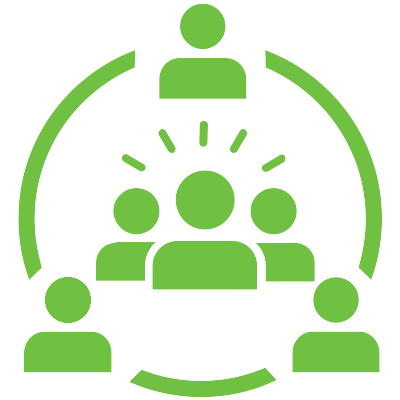
- Describe strategies for clinical practice to obtain information about local community resources.
3 URLs, 1 Quiz, 1 Page -
Course and Self Evaluation & Certificate
 In this section, you can provide feedback about this course to help us make NextGenU.org better. Once evaluations are completed, you will be able to download your certificate of completion.
In this section, you can provide feedback about this course to help us make NextGenU.org better. Once evaluations are completed, you will be able to download your certificate of completion.
Click here give your feedback1 Questionnaire



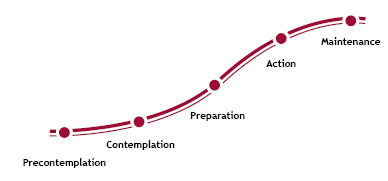
 Click here to start Final Examination
Click here to start Final Examination